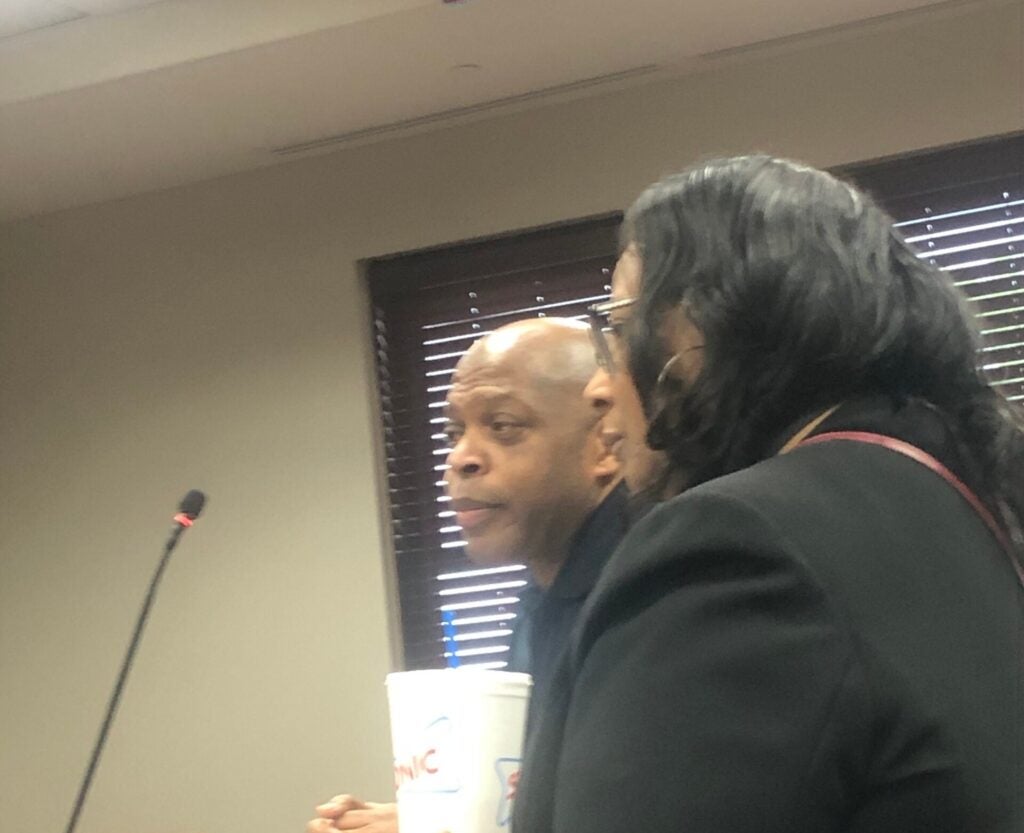Sumter County Commissioners Hear of Reduced Revenue from Utilities
Published 9:50 am Friday, April 12, 2024

- Chief Appraiser Christopher Williams (left) and vice Chair Michele Seay (right) address the Board.
The Sumter County Board of Commissioners met at the Court House on April 9th 2024. They heard a review of the tax commissioner’s report. Interim County
Administrator, Doug Eaves, addressed the Board. “The Tax Commissioner gave us notice last week of some issues that had developed with the billing for utilities.”
Eaves mentioned that there were differences between assessment notices sent out in January and the billings. “Not on the values, but on the percentages they were going to be assessed at.”
He mentioned the details. “The tax commissioner was instructed on December 29th by the board of assessors. . . to bill utilities at 40%, based on the utilities statement. The assessment notices that went out, they were prepared in November, they were signed by the chairman of the County Board of tax assessors. . . the notices were mailed on January 2nd, stated that the assessment notice was going to be at the 34.64% which was the sales ratio. This has happened in the past [where] the sales ratio was lower than the 40% utilities, and the board of assessors in the past had appealed and set their own final assessment at the 40% value.”
Eaves mentioned that utilities were valued by the State, and that it would have satisfied an appeal. He detailed the amount of lost revenue: “The County is going to lose $117,757 in billable tax revenues for this past year. The School Board is going to lose $205,208. On top of that, we are going to have to refund previously paid utility bills to the amount of $25,962.”
Eaves noted a lack of communication with the Board. “The biggest problem is that it took us until April for the issue to become known.”
Doug Eaves further elaborated. “The letter to the tax commissioner directing her to tax at 40% was dated December the 29th, 2023. The date of the assessment notices was prepared by the State on November 21rst, it was signed by the chairman Michael Coley on January the 2nd, 2024.”
He talked about how the issue had come to light. “The tax commissioner was approached by a citizen, by a company that had received an assessment notice at 34%, received their bill at the 40%, they requested the difference.” Eaves praised the citizen for her research and bringing the information to them.
While the chair Michael Coley was unavailable, vice Chair Michele Seay and Chief Appraiser Christopher Williams were present.
Williams addressed the Board. “The 40% ratio that my office sent over to the tax commissioners office, that was oversight on my part. I took the recommendation of the department of audits that said we should bill at 34.6%, and that’s why we didn’t bill at 40%.”
He explained why he had chosen the 34.6% value. “If we had billed that 40%, we would have had to defend that value, and from the recommendation of the department of audits, they didn’t think that we would be able to defend those values.”
Doug Eaves has said that the department of revenue is responsible for giving approval to the tax digest.
Williams continued. “When the recommendation comes back to us, it comes back through the department of audits. The department of revenue doesn’t make the recommendation, the department of audits makes the recommendation.”
Eaves reiterated that a January 25th letter from the department of revenue had given conditional approval for the tax digest. “That would have been the basis for an appeal.”
Waddell stated someone should have notified them. Leah Watson, Tax Commissioner, addressed the Board. “Around the first week of March was when I was notified. The day I was notified, I called Mr. Coley and he came to my office and we had a long discussion on it. So Mr. Coley knew it the day I found out about it.”






